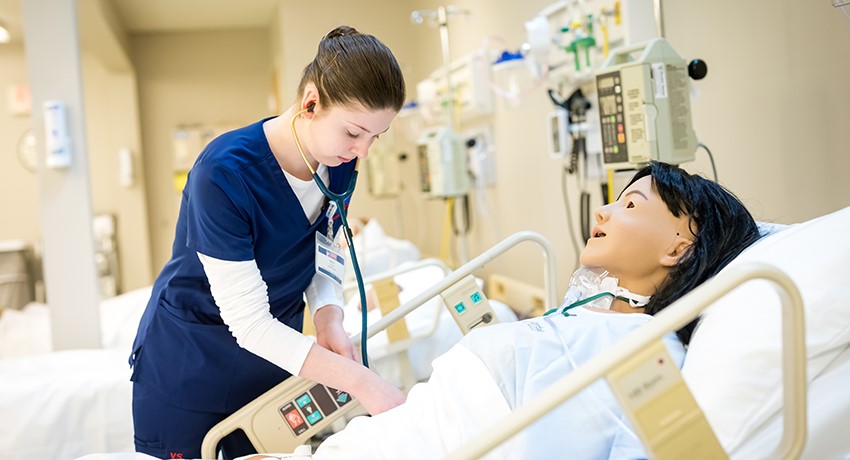
By Madison West
Cassie Koester, Dean of Nursing at Volunteer State Community College, has witnessed many changes to teaching at the school and to the healthcare industry in whole due to the COVID-19 pandemic.
According to Koester, the biggest change educationally has been moving everything to online learning.
“Nursing is a demanding program. Faculty have worked hard to deliver the same content they would in a classroom setting and the students have worked very hard to achieve the same outcomes. There has been a lot of creativity to do things at home you normally would have done on campus,” she said.
However, according to Koester, online learning has proven to have some positives and she believes the online learning resources they have acquired will continue to be used after the pandemic.
“Virtual simulation has been instrumental in helping students experience multiple patient scenarios they would not otherwise get the opportunity to experience. It allows for the to care for virtual patients in a safe environment where they learn and build confidence. This is definitely a resource we will continue to use post-pandemic,” she said.
According to Koester, this pandemic has extremely impacted the healthcare system with unexpected challenges as well.
“Still, each day, these workers go to work, and face challenges in order to care for others. They have helped keep the world going. While having more than enough to do each day, they continue to be welcoming to our nursing students,” she said.
Koester also noted that Vol State students are not working directly with COVID positive patients while in the clinical setting.
“Most facilities have kept students on non-COVID units in order to preserve PPE,” she said.
Cassandra Cassidy, a full-time nursing instructor at both the Gallatin and Livingston Vol State campus’, spoke about the changes within the nursing program specifically.
“Initially, our clinical placements were cancelled. We acclimated to this by using software programs that we currently had in place allowing us to apply the availabilities within these platforms to meet our new demands within it and the process went seamlessly,” she said.
Cassidy also spoke highly of students currently enrolled in the nursing program.
“Our students proved to be resilient and determined to complete their requirements for successful completion of the program overall. With the cohort we have now, all they have known is the limited version of the nursing program, meaning implied social distancing on all on-ground activities including clinicals and labs, as well as PPE requirements, screening processed both virtually and in-person, and no in-person classroom instruction,” she said.
According to Cassidy, the changes due to COVID-19 are here to stay.
“For now, the measures in place have become a new normal and we have fully acclimated to accommodate the necessary measures to maintain the health and safety of our participants within the program. Looking outward, the health care industry has acclimated to the current demands as we’ve experienced within our clinical settings such as, but not limited to, nurses are working within thinner grids, charting within modified structures, and being called upon to facilitate care within ever changing guidelines,” said Cassidy.
Along with the changes mentioned comes the hardest challenge throughout the pandemic of all, which is keeping up with the new current standard and following the COVID safety guidelines, said Cassidy.
According to both Cassidy and Koester, to keep safe and stay healthy in this pandemic we need to follow what is known to be best practice, such as wearing a mask, maintaining hygiene, social distancing, avoiding group gathering and when we suspect we may have a symptom of the virus, get tested and isolate.
In addition to these safety practices, another important standard to now follow is to get vaccinated, said Cassidy.
“As for myself personally, I was able to get the vaccine and gladly did so as soon as I could get in line,” she said.
Cassidy also addressed people who may be hesitant to get the COVID-19 vaccination.
“To those who might be leery regarding receiving the COVID-19 vaccination I would let them know it is no place to sway their decision one way or the other, but I would recommend them to look at the evidence that is established regarding the vaccine and if that didn’t give clarity, they could compare that to other vaccines and that associated data to evaluate the comparability of the safety,” she said.
Students who are interested in getting involved in the nursing program can check out the two different nursing programs Vol State offers.
According to the Vol State website, the college offers “pre-nursing classes that prepare students to apply for the Vol State RN A.A.S. nursing program” or “pre-nursing classes to prepare students for transfer to a four-year nursing program.”




Be First to Comment